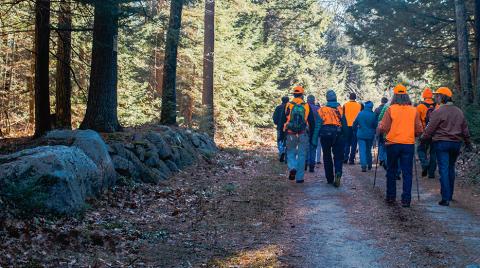Building a Better Extension

This program year we will be initiating a major effort to “Meet People Where They Are."
The spirit of our organization is accessibility and inclusion for every resident of New Hampshire regardless of social economic status, age or race. To represent this spirit we will need to reflect the diversity of our changing state and demonstrate a culture of inclusivity that respects the communities in which we work.
New Hampshire is changing. Approximately 50% of the state’s population growth over the last decade was due to the arrival of New Americans and immigrants. This has contributed to an increase in linguistic and cultural diversity in our state. This population grew 67.5% to more than 101,000 residents between 2006 and 2016. Not only is New Hampshire becoming more diverse, we also share the distinction of being the state with the second earliest African American population in the nation. What will these changes mean to UNH Extension? How will we remain accessible, relevant and inclusive?
We are making progress and can take pride in the actions we have taken over the past year to enhance our understanding and respect for multiculturalism and diversity. Some highlights include development of a civil rights compliance toolkit; a cohort of staff working to improve their own cultural effectiveness; and CED programs highlighting the inclusion of diverse populations. Extension’s Professional Development Committee has prioritized staff training in universal design, a way of designing learning environments that can accommodate individual learning differences.
But we can’t stop there. These are all steps in the right direction, but we have to do more if we want to give all New Hampshire citizens equal access to our programs and everything we have to offer.
In this vein, I am announcing a new initiative to bring together staff to continue to identify innovative ways to “Meet People Where They Are” over the next year. This task force will be challenged to take creative action to move our organization forward in meaningful and impactful ways. Many of you have already expressed your interest in working on these issues and I look forward to your participation.
To me, cultural proficiency is not only the acceptance of cultural or social differences, but rather a transformational process that allows us, as educators, to acknowledge, collaborate and learn with a group other than our own. This I believe is particularly critical for Extension which represents the outreach arm and connection to community for the university.
photo credit: Emily Lord